第17章 CHAPTER X(2)
As the constitution of this court is altogether new in the British annals,I hope my reader will not think me prolix in the description I am about to give of it.The number of members,including the judge Advocate,is limited,by Act of Parliament,to seven,who are expressly ordered to be officers,either of His Majesty's sea or land forces.The court being met,completely arrayed and armed as at a military tribunal,the Judge Advocate proceeds to administer the usual oaths taken by jurymen in England to each member;one of whom afterwards swears him in a like manner.This ceremony being adjusted,the crime laid to the prisoner's charge is read to him,and the question of Guilty,or Not guilty,put.No law officer on the side of the crown being appointed,(for I presume the head of the court ought hardly to consider himself in that light,notwithstanding the title he bears)to prosecute the criminal is left entirely to the party,at whose suit he is tried.All the witnesses are examined on oath,and the decision is directed to be given according to the laws of England,"or as nearly as may be,allowing for the circumstances and situation of the settlement,"by a majority of votes,beginning with the youngest member,and ending with the president of the court.In cases,however,of a capital nature,no verdict can be given,unless five,at least,of the seven members present concur therein.The evidence on both sides being finished,and the prisoner's defence heard,the court is cleared,and,on the judgement being settled,is thrown open again,and sentence pronounced.During the time the court sits,the place in which it is assembled is directed to be surrounded by a guard under arms,and admission to every one who may choose to enter it,granted.Of late,however,our colonists are supposed to be in such a train of subordination,as to make the presence of so large a military force unnecessary;and two centinels,in addition to the Provost Martial,are considered as sufficient.
It would be as needless,as impertinent,to anticipate the reflections which will arise in reading the above account,wherein a regard to accuracy only has been consulted.By comparing it with the mode of administering justice in the English courts of law,it will be found to differ in many points very essentially.And if we turn our eyes to the usage of military tribunals,it no less departs from the customs observed in them.Let not the novelty of it,however,prejudice any one so far as to dispute its efficacy,and the necessity of the case which gave it birth.
The court,whose meeting is already spoken of,proceeded to the trial of three convicts,one of whom was convicted of having struck a marine with a cooper's adze,and otherwise behaving in a very riotous and scandalous manner,for which he was sentenced to receive one hundred and fifty lashes,being a smaller punishment than a soldier in a like case would have suffered from the judgement of a court martial.A second,for having committed a petty theft,was sent to a small barren island,and kept there on bread and water only,for a week.And the third was sentenced to receive fifty lashes,but was recommended by the court to the Governor,and forgiven.
Hitherto,however,(February)nothing of a very atrocious nature had appeared.
But the day was at hand,on which the violation of public security could no longer be restrained,by the infliction of temporary punishment.
A set of desperate and hardened villains leagued themselves for the purposes of depredation,and,as it generally happens,had art enough to persuade some others,less deeply versed in iniquity,to be the instruments for carrying it on.Fortunately the progress of these miscreants was not of long duration.They were detected in stealing a large quantity of provisions at the time of issuing them.And on being apprehended,one of the tools of the superiors impeached the rest,and disclosed the scheme.
The trial came on the 28th of the month,and of four who were arraigned for the offence,three were condemned to die,and the fourth to receive a very severe corporal punishment.In hopes that his lenity would not be abused,his Excellency was,however,pleased to order one only for execution,which took place a little before sun-set the same day.The name of the unhappy wretch was Thomas Barret,an old and desperate offender,who died with that hardy spirit,which too often is found in the worst and most abandoned class of men.During the execution the battalion of marines was under arms,and the whole of the convicts obliged to be present.
The two associates of the sufferer were ordered to be kept close prisoners,until an eligible place to banish them to could be fixed on;as were also two more,who on the following day were condemned to die for a similar offence.
Besides the Criminal court,there is an inferior one composed of the Judge Advocate,and one or more justices of the peace,for the trial of small misdemeanours.This court is likewise empowered to decide all law suits,and its verdict is final,except where the sum in dispute amounts to more than three hundred pounds,in which case an appeal to England can be made from its decree.Should necessity warrant it,an Admiralty court,of which Lieutenant Governor Ross is judge,can also be summoned,for the trial of offences committed on the high seas.
From being unwilling to break the thread of my narrative,I omitted to note in its proper place the sailing of the 'Supply',Lieut.Ball,on the 15th of the month,for Norfolk Island,which the Governor had instructions from the ministry to take possession of.Lieut.King of the Sirius was sent as superintendent and commandant of this place,and carried with him a surgeon,a midshipman,a sawyer,a weaver,two marines,and sixteen convicts,of whom six were women.He was also supplied with a certain number of live animals to stock the island,besides garden seeds,grain,and other requisites.